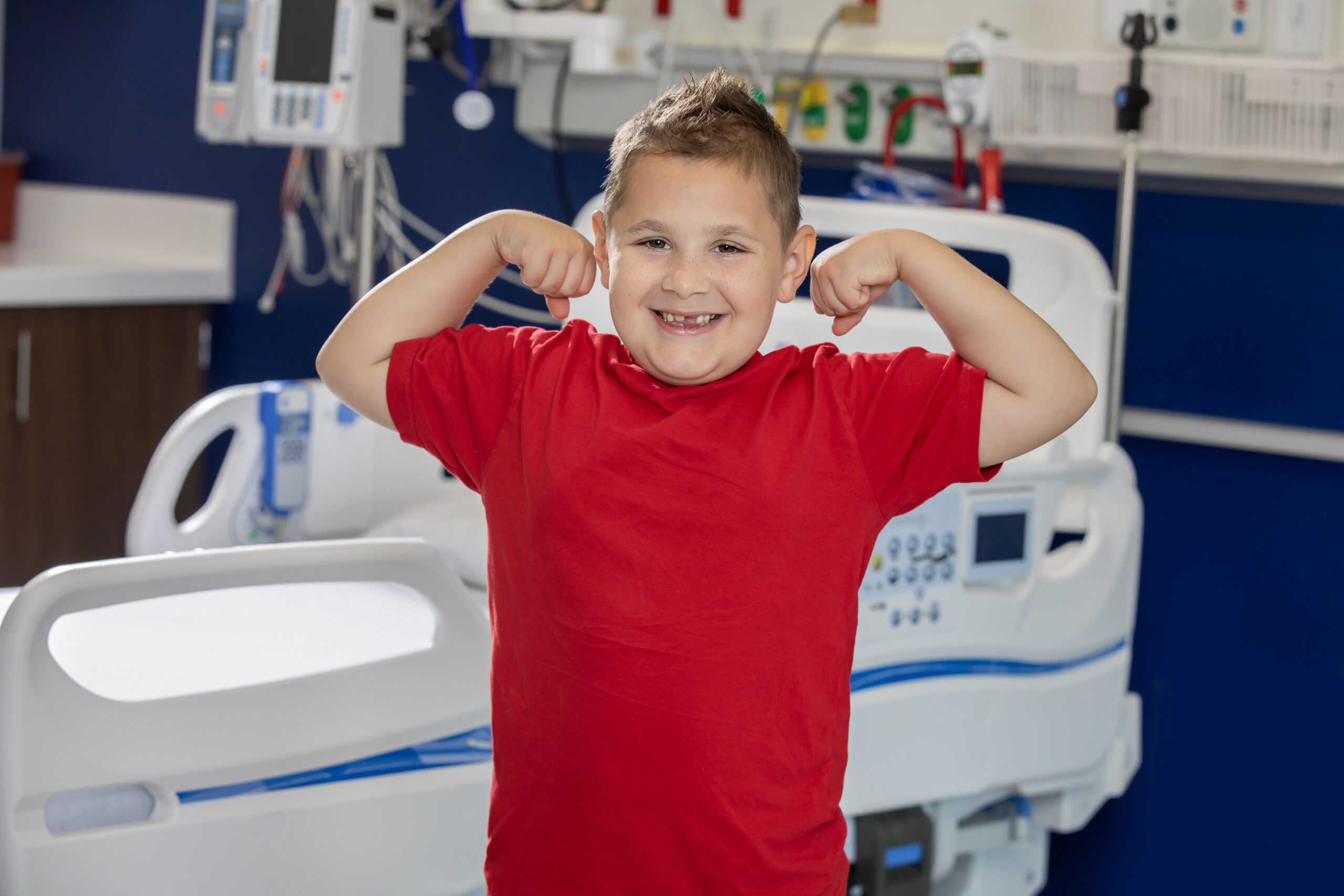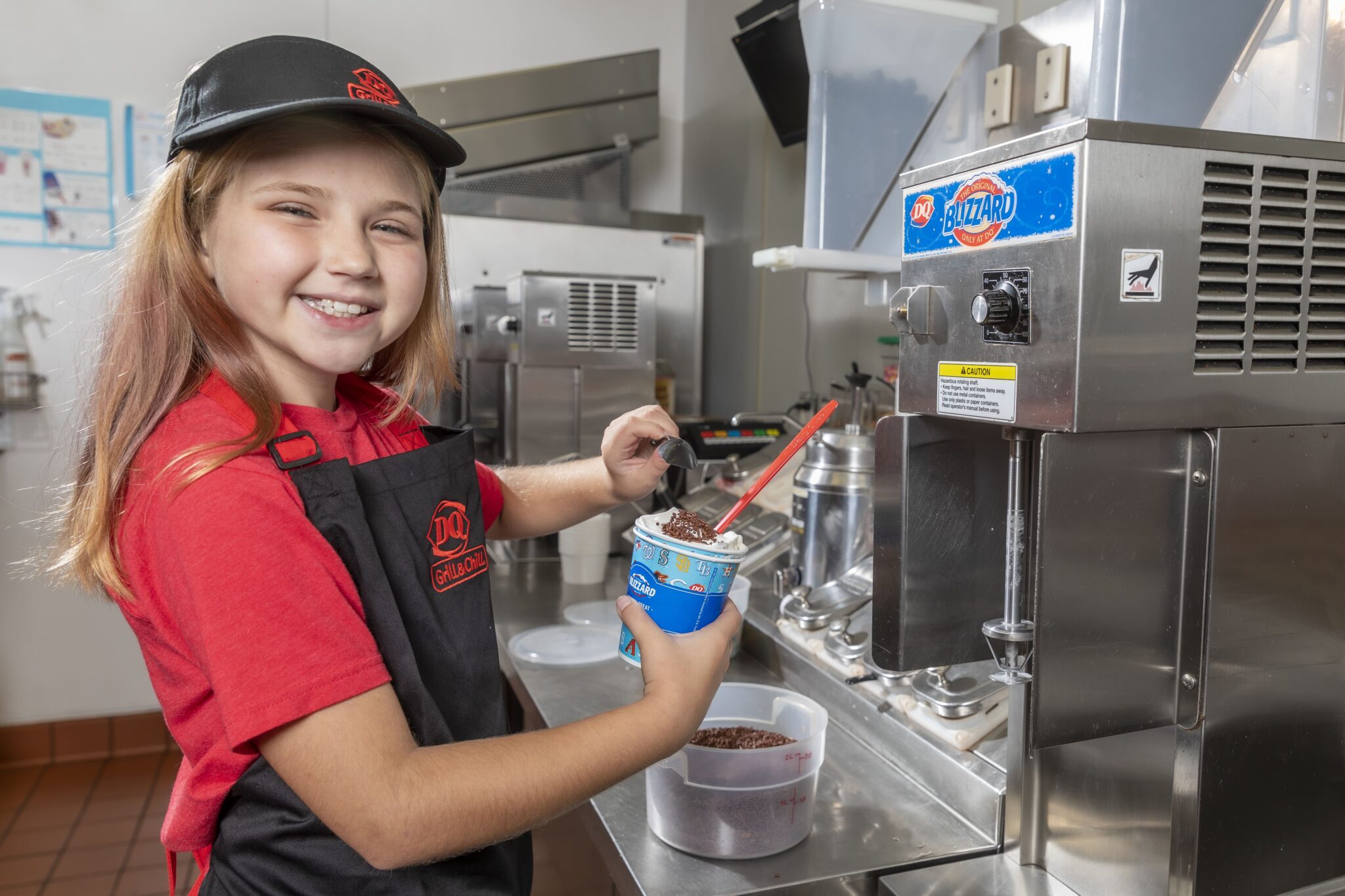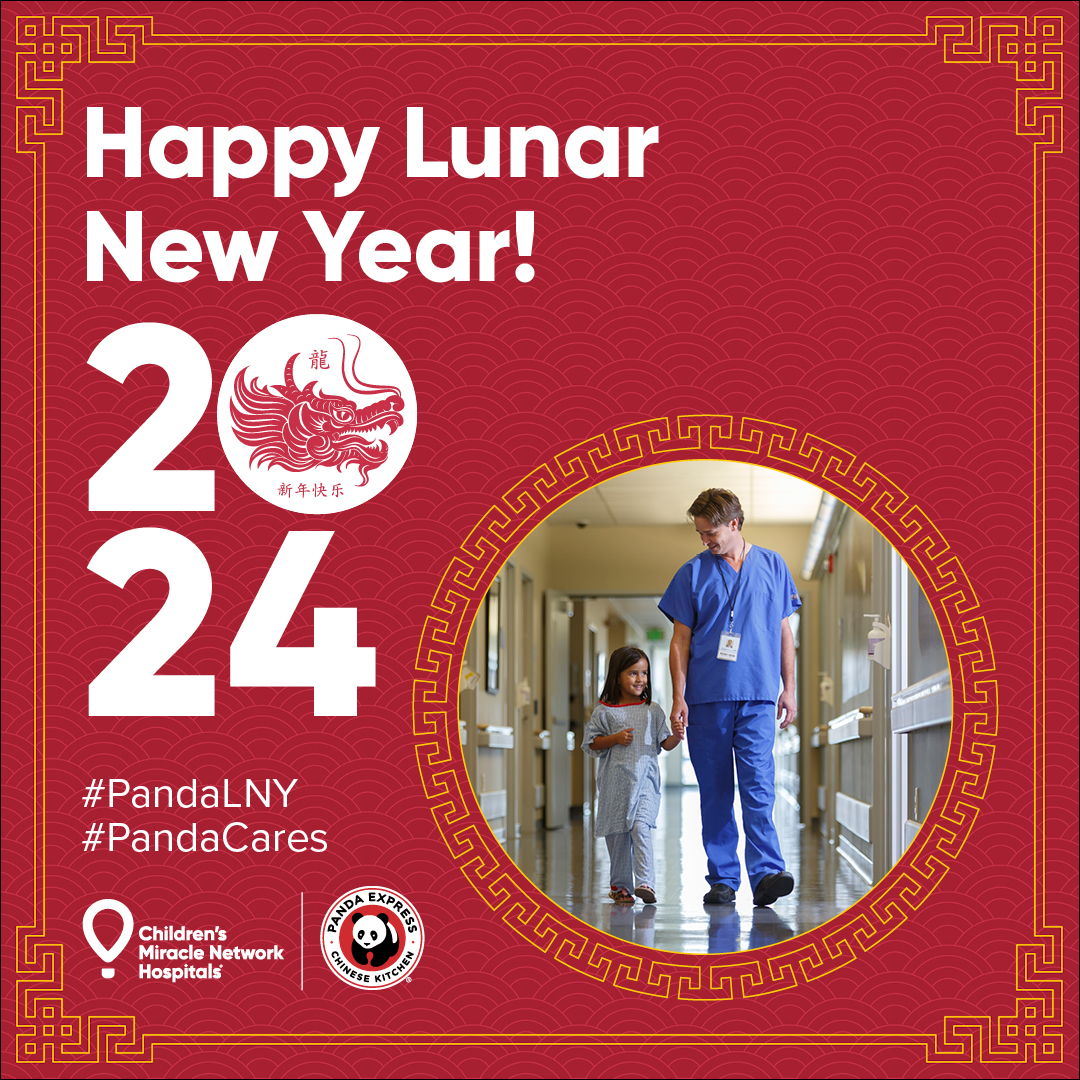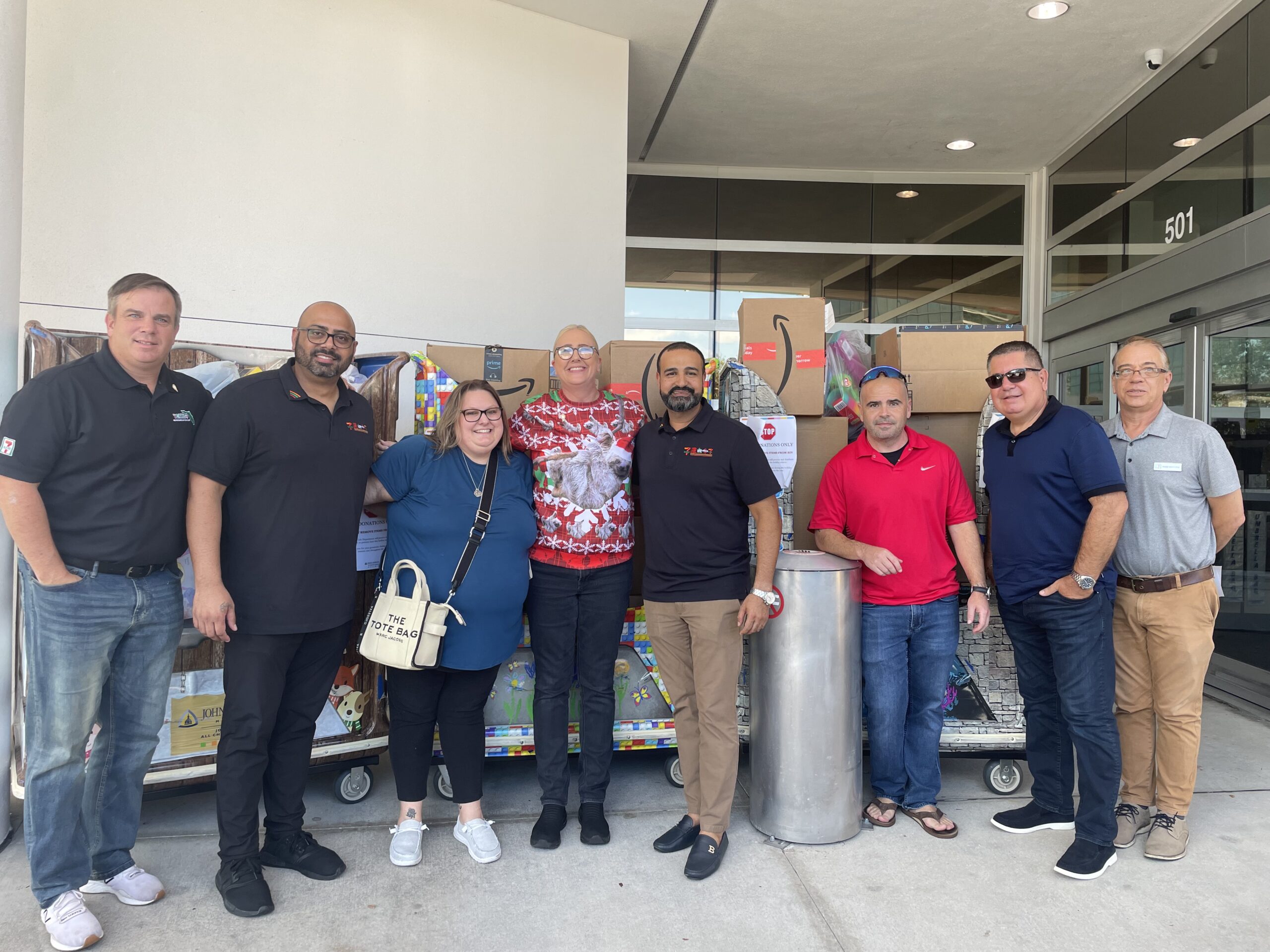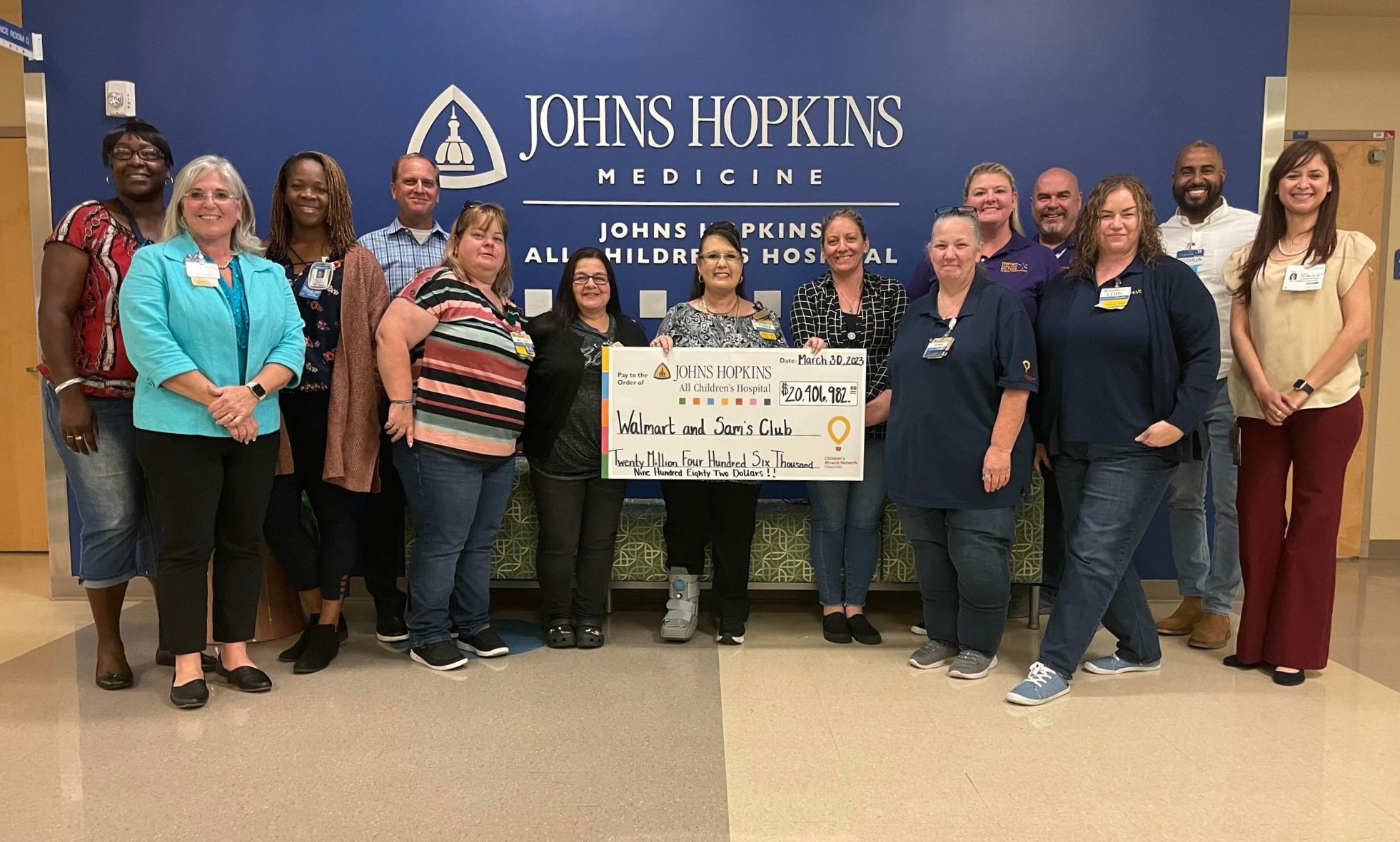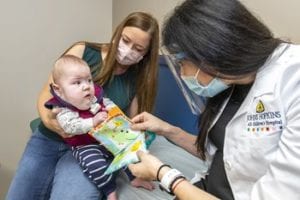
Stephanie of Clearwater had already been through one high-risk pregnancy—her daughter, Cora, was born premature after Stephanie developed preeclampsia. When Stephanie and her husband, Charles, learned they were expecting again, Stephanie’s obstetrician suggested she visit Johns Hopkins All Children’s Hospital to see a maternal-fetal medicine specialist. In February 2020, during Stephanie’s 20-week ultrasound anatomy scan at the hospital, she learned her baby had a neck mass.
“I had a lot of ‘why is this happening?’ feelings at first,” Stephanie says. “After talking with Charles, we realized we’re given these challenges for a reason, and that means we’re able to handle them.”
Stephanie became a patient of the Fetal Care Program at the Johns Hopkins All Children’s Maternal, Fetal & Neonatal Institute, which brings together physicians from an array of specialties to care for women with high-risk or complex pregnancies and their babies. The team made a plan to help Stephanie and Cameron.
“Expectant mothers with high-risk or complex pregnancies go through so much,” says Mara DiBartolomeo, D.O., M.P.H., FAAP, Medical Director of the Fetal Care Program. “The goal of the Fetal Care Program is to take away a lot of their stress and uncertainty by advocating for them and their babies.”
Clearing the Airway
The mass was benign, but physicians were concerned it might obstruct baby Cameron’s airway. They planned to deliver Cameron via cesarean section but keep him attached to Stephanie via the umbilical cord to maintain circulation while placing a breathing tube to bypass his airway. Then they would complete the delivery.
On May 15 — earlier than planned after Stephanie developed preeclampsia — the multidisciplinary team gathered at Johns Hopkins All Children’s on short notice and carried out its plan to perfection. Cameron spent 125 days in the neonatal intensive care unit and received a variety of treatments, including surgery to remove part of the mass.
He’ll need more treatments in the years ahead, but his prognosis is bright. Now, he’s happy and thriving at home.
“With the support of the Fetal Care Program team, you learn how strong you are to advocate for your child,” Stephanie says. “Knowing they have your back gives you the strength to do everything possible to give your child the best outcome.”

